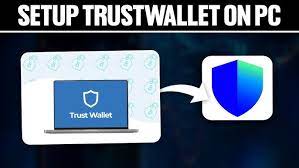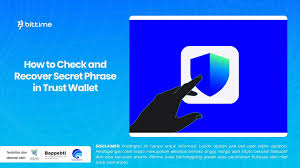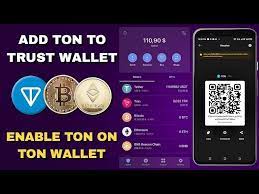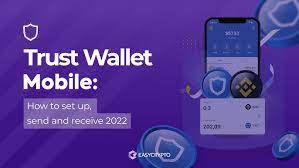
Trust Wallet is free to download and use; there are no charges for the wallet itself, only network fees for transactions.
Is Trust Wallet Free to Use?
Understanding Trust Wallet’s Zero-Cost Model
-
No Charges for Basic Wallet Functions: Trust Wallet is free to download and use. There are no upfront costs or subscription fees associated with basic functions like storing, receiving, and sending cryptocurrencies.
-
Non-Custodial Service: As a non-custodial wallet, Trust Wallet gives users full control over their private keys, meaning users don’t need to pay any service fees for custody or account maintenance.
Does Trust Wallet Charge Any Fees for Transactions?
-
Network (Gas) Fees: Trust Wallet does not charge any transaction fees, but users will incur network fees (gas fees) when sending cryptocurrencies. These fees are paid to the respective blockchain network (e.g., Ethereum, Binance Smart Chain) to process and validate the transaction.
-
Third-Party Service Fees: If you buy or sell crypto through integrated third-party services like MoonPay or Simplex, they may charge processing fees, which are separate from Trust Wallet’s operations.
-
No Hidden Fees: Trust Wallet is transparent about its fee structure. The app does not charge hidden fees or commissions for transactions within the wallet.

Are There Any Hidden Fees in Trust Wallet?
Network and Gas Fees Explained
-
Network Fees: Trust Wallet does not charge any transaction fees itself; however, users must pay network fees (also known as gas fees) when sending cryptocurrencies. These fees are paid to the blockchain network (e.g., Ethereum, Binance Smart Chain) to process the transaction and ensure its confirmation.
-
Variable Gas Fees: The amount of gas fees can fluctuate based on network congestion and the transaction’s size. Trust Wallet allows users to adjust gas fees manually for some networks, although setting them too low may result in slower or failed transactions.
Third-Party Service Fees When Buying Crypto via Trust Wallet
-
Fiat-to-Crypto Purchases: When buying cryptocurrencies through integrated third-party services like MoonPay, Simplex, or others, they charge their own processing fees. These fees cover the cost of converting fiat currency (e.g., USD, EUR) into crypto.
-
Fee Transparency: Trust Wallet makes it clear that these fees are from the third-party providers, not the wallet itself. The fees vary depending on the service provider and payment method (credit/debit card, bank transfer).
-
No Additional Fees from Trust Wallet: Trust Wallet does not charge any additional fees for using third-party services. All fees are clearly displayed during the transaction process.

How Does Trust Wallet Make Money?
Revenue Model: How Trust Wallet Earns Without Charging Users
-
Non-Custodial Model: Trust Wallet doesn’t charge users for its wallet services, such as storing or transferring cryptocurrencies. Since it’s non-custodial, Trust Wallet doesn’t hold user funds or manage accounts, which eliminates the need for subscription or service fees.
-
Transaction Fees from Network: While Trust Wallet doesn’t charge transaction fees itself, it processes transactions on blockchain networks where users pay network (gas) fees. These fees are directed to the blockchain, not to Trust Wallet.
-
DeFi and Staking Features: Trust Wallet allows users to stake certain cryptocurrencies and earn rewards. The platform may partner with staking platforms or other services that might share a small fee for facilitating staking activities, although this is not directly charged to users.
Partnerships and Third-Party Integrations Generating Revenue
-
Third-Party Service Fees: Trust Wallet partners with third-party services like MoonPay, Simplex, and Binance, which offer fiat-to-crypto services within the app. These services charge users a fee for buying or converting crypto, a portion of which may be shared with Trust Wallet for facilitating the transactions.
-
Token Swaps and DApp Integrations: Trust Wallet also earns revenue through its DApp browser, where users access decentralized exchanges (DEXs) and DeFi platforms. Some of these DApps may offer token swap services that include transaction fees, which may generate revenue for Trust Wallet through affiliate partnerships.
-
Liquidity Pools and DeFi Integration: Trust Wallet’s integration with DeFi platforms and liquidity pools can create revenue opportunities, especially when users interact with platforms that offer rewards or interest for using Trust Wallet’s built-in services.
What Are the Costs Involved with Using Trust Wallet?
Transaction Fees and Gas Costs in Trust Wallet
-
Network (Gas) Fees: While Trust Wallet itself does not charge transaction fees, users are responsible for paying network fees (gas fees) when sending or receiving cryptocurrencies. These fees are paid to the blockchain network (e.g., Ethereum, Binance Smart Chain) to process and confirm the transaction.
-
Variable Gas Fees: Gas fees can fluctuate based on network congestion and the type of transaction. Trust Wallet allows users to adjust the gas fees in some cases to prioritize speed or cost-effectiveness. However, setting fees too low can result in slower or failed transactions.
-
Token Swap Fees: When using Trust Wallet’s built-in exchange feature for token swaps, users may incur additional fees from decentralized exchanges (DEXs) or liquidity providers involved in the trade.
Is There a Cost for Storing Tokens in Trust Wallet?
-
No Storage Fees: Trust Wallet does not charge any fees for storing tokens or cryptocurrencies. The wallet provides free storage for all supported assets, and users retain full control over their funds.
-
No Custodial Fees: As a non-custodial wallet, Trust Wallet does not charge any account maintenance or storage fees. You only pay for transactions when sending or converting tokens, not for keeping them in your wallet.

Can You Buy Cryptocurrency in Trust Wallet? What Are the Costs?
Buying Crypto via Third-Party Services in Trust Wallet
-
Integrated Services: Trust Wallet allows users to buy cryptocurrency directly within the app using third-party services like MoonPay, Simplex, and others. These services facilitate fiat-to-crypto transactions, enabling users to purchase popular cryptocurrencies like Bitcoin (BTC), Ethereum (ETH), and Binance Coin (BNB) using fiat currency.
-
Convenient Process: The process is straightforward: users select the amount of crypto they wish to buy, choose their payment method (credit card, debit card, or bank transfer), and confirm the transaction. The crypto is then sent directly to the user’s Trust Wallet.
What Are the Charges When Using Credit Cards or Bank Transfers?
-
Credit Card/Debit Card Fees: When buying crypto using credit or debit cards, third-party services typically charge a processing fee. These fees generally range from 3% to 5% of the transaction amount, depending on the payment provider.
-
Bank Transfer Fees: If you opt to use a bank transfer, the fees may be lower than card payments but can take longer to process. Some third-party services may charge a fixed fee or a small percentage of the transaction amount for bank transfers.
-
Additional Fees: In addition to third-party service fees, users may encounter network fees (gas fees) when converting fiat to crypto, though these are not specific to Trust Wallet but are required by the respective blockchain network.

Can I Use Trust Wallet for Free on All Devices?
Trust Wallet’s Compatibility with Android and iOS Devices
-
Cross-Platform Availability: Trust Wallet is available for both Android and iOS devices, providing seamless compatibility across smartphones and tablets.
-
Easy Installation: You can download Trust Wallet for free from the Google Play Store (for Android) or the Apple App Store (for iOS) without any cost involved.
No Costs for Downloading or Using Trust Wallet on Your Phone
-
Free to Download: Trust Wallet can be downloaded at no cost from both app stores, with no hidden fees for installation.
-
No Usage Fees: Using Trust Wallet for managing, storing, and sending cryptocurrencies is completely free. The only costs involved are the network (gas) fees when sending or swapping crypto, which are paid to the blockchain network, not Trust Wallet itself.

How Secure is Trust Wallet Without Any Costs?
Trust Wallet’s Security Features Without Extra Charges
-
Private Key Control: Trust Wallet is a non-custodial wallet, meaning you retain full control over your private keys without any extra fees. Your private keys are stored securely on your device.
-
Encryption: Trust Wallet uses advanced encryption techniques to secure your private data, ensuring that your information is safe from unauthorized access.
-
Backup and Recovery: Trust Wallet provides a 12-word recovery phrase for backup, which is free to use and ensures that your wallet can be restored if you lose access to your device.
How Trust Wallet Ensures Safe Transactions at No Cost
-
Decentralized Nature: Trust Wallet allows you to make transactions directly on the blockchain, ensuring you don’t rely on a third-party service that might charge for added security.
-
Biometric and PIN Protection: You can set up PIN or biometric authentication (fingerprint/face recognition) at no additional cost, providing an extra layer of security to prevent unauthorized access.
-
Transaction Verification: Trust Wallet verifies every transaction, ensuring you approve only valid transfers before execution. It doesn’t charge extra fees for this protection.
Is Trust Wallet free to use?
Yes, Trust Wallet is free to download and use. There are no fees for storing or managing your assets.
Are there any hidden fees with Trust Wallet?
Trust Wallet does not charge hidden fees. However, you will incur network (gas) fees when sending or receiving cryptocurrencies.
Can I buy crypto directly in Trust Wallet? What are the costs?
Yes, you can buy crypto via third-party services like MoonPay or Simplex. They charge processing fees, which vary depending on the payment method.
Leave a Reply